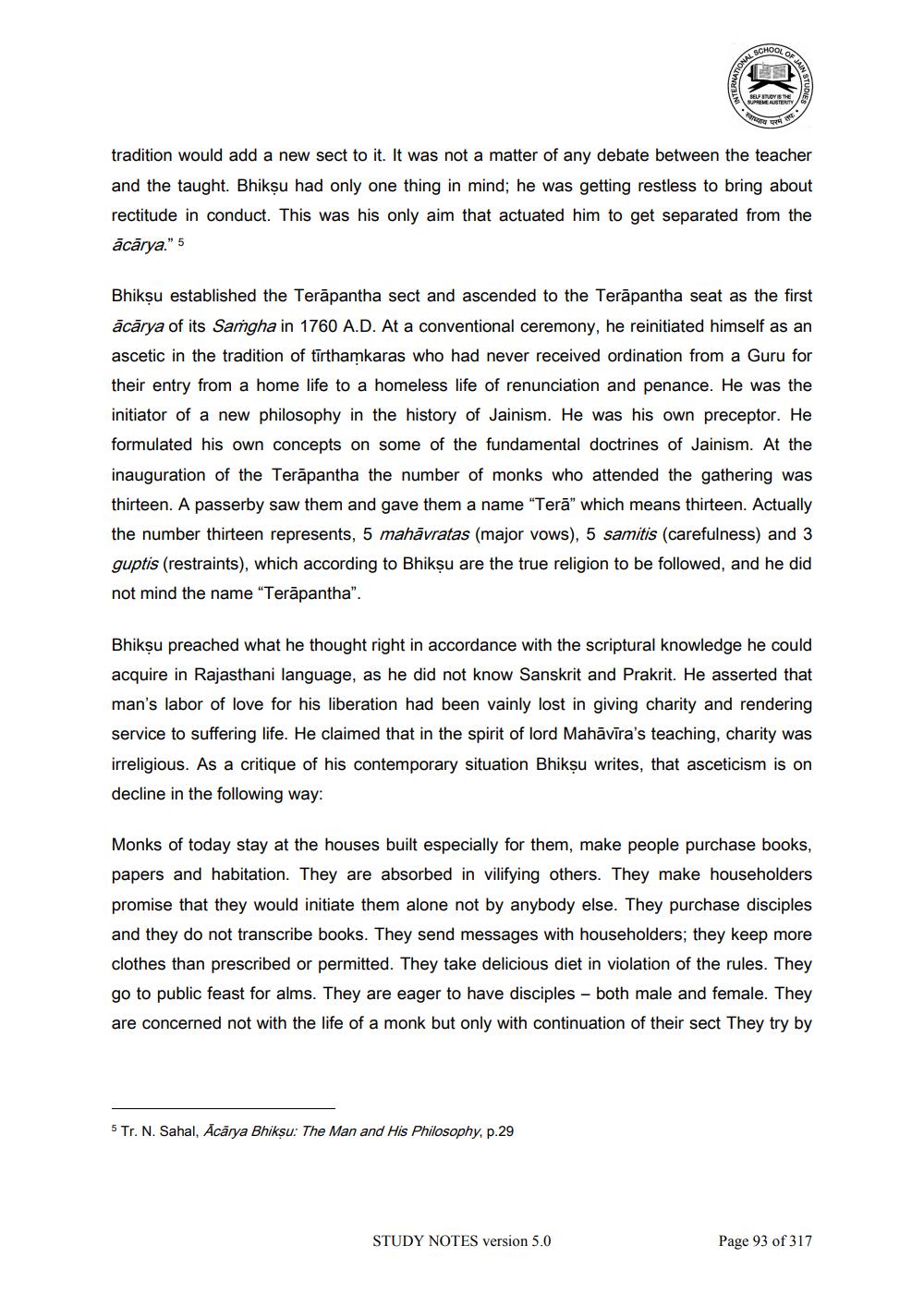________________
tradition would add a new sect to it. It was not a matter of any debate between the teacher and the taught. Bhikṣu had only one thing in mind; he was getting restless to bring about rectitude in conduct. This was his only aim that actuated him to get separated from the ācārya." 5
Bhikṣu established the Terapantha sect and ascended to the Terapantha seat as the first ācārya of its Saṁgha in 1760 A.D. At a conventional ceremony, he reinitiated himself as an ascetic in the tradition of tīrthamkaras who had never received ordination from a Guru for their entry from a home life to a homeless life of renunciation and penance. He was the initiator of a new philosophy in the history of Jainism. He was his own preceptor. He formulated his own concepts on some of the fundamental doctrines of Jainism. At the inauguration of the Terāpantha the number of monks who attended the gathering was thirteen. A passerby saw them and gave them a name "Terā” which means thirteen. Actually the number thirteen represents, 5 mahāvratas (major vows), 5 samitis (carefulness) and 3 guptis (restraints), which according to Bhikṣu are the true religion to be followed, and he did not mind the name "Terāpantha".
Bhikṣu preached what he thought right in accordance with the scriptural knowledge he could acquire in Rajasthani language, as he did not know Sanskrit and Prakrit. He asserted that man's labor of love for his liberation had been vainly lost in giving charity and rendering service to suffering life. He claimed that in the spirit of lord Mahāvīra's teaching, charity was irreligious. As a critique of his contemporary situation Bhikṣu writes, that asceticism is on decline in the following way:
Monks of today stay at the houses built especially for them, make people purchase books, papers and habitation. They are absorbed in vilifying others. They make householders promise that they would initiate them alone not by anybody else. They purchase disciples and they do not transcribe books. They send messages with householders; they keep more clothes than prescribed or permitted. They take delicious diet in violation of the rules. They go to public feast for alms. They are eager to have disciples - both male and female. They are concerned not with the life of a monk but only with continuation of their sect They try by
5 Tr. N. Sahal, Acārya Bhiksu: The Man and His Philosophy, p.29
STUDY NOTES version 5.0
Page 93 of 317




